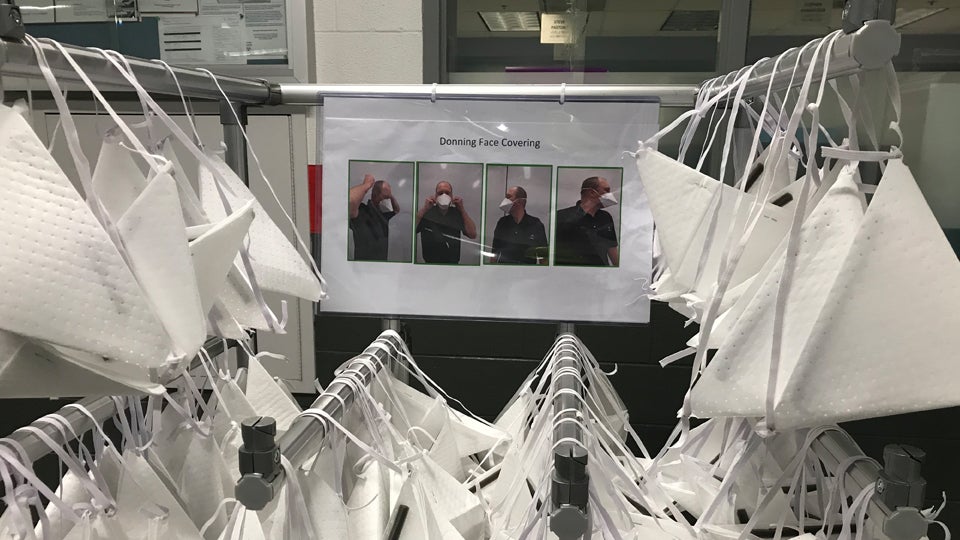Toyota resumes Indiana production with focus on safety
PRINCETON, Ind. (Inside INdiana Business) — As the 7,000 employees of the Toyota Motor Manufacturing Indiana plant return to work in Gibson County, they will be greeted by volumes of new company guidelines and stacks of personal protective equipment to prevent the spread of COVID-19.
The company said approximately 2,000 employees returned on Monday for training. The remainder will be on the clock Friday.
“The last seven weeks have been extremely busy,” said TMMI President Leah Curry. “Across North America, we’ve been working on protocols and procedures to put in place.”
Curry said the company has implemented at least 100 new measures, including social distancing policies, barrier installation, and proper mask placement.
“Knowing how to wear a mask. How to put it on and how to take it off and how to store it. There are probably 10 different things you need to know about just wearing a mask,” said Curry.
The company suspended operations on March 23. During that seven-week span, Toyota extended the production shutdown three times.
While much of the re-start focuses on new safety protocols, some auto production will begin this week.
“Our volume will be slowly ramped up over four to five weeks, it’ll be a very slow ramp up,” said Curry.
She expects a “few” vehicles will be built by this Friday while focusing a lot of attention on new safety policies.
“We’re doing that to give team members extra time – longer breaks, time to clean workstations, staggered breaks and lunches” said Curry.
Next week, production should reach 40% capacity. But Curry said a return to full production on Highlanders, Siennas and Sequoias will not return until summer.
Toyota idled operations for several reasons, including a decrease in demand for autos, adequate time to institute new safety protocols, and supply chain disruptions, which Curry said is one of the biggest challenges the company faces.
“Whether they’re on-site, near-site, or in other states or Mexico, they will have to get up and running so we can get up and running,” Curry said. “Every state is different right now. Conditions are different in every state based on if they have hot spots or not.”
Toyota has instituted multiple changes throughout the facility, including the auto assembly areas, cafeterias, breakrooms, and entrances.
Workers who enter the plant will face questioning about symptoms, hand sanitization, and a temperature check with a thermal imaging camera.
Curry said only two employees tested positive for COVID-19 and that was after the shutdown.
The company has a 100% mask usage for anyone who enters the plant. During any given 24-hour period, the plant in Princeton could have 11,000 people between workers, vendors, and contractors.
With such a high need, the plant has even started to make its own masks. So far, they have produced 110,000.
“We set up a little manufacturing operation,” said Curry. “We got it down to making one every four seconds.”
Workers at the Princeton plant have also been using a 3-D printer to produce parts for plastic face shields to share with other Toyota plants.
Curry said the ability to quickly pivot facilities to make face shields in mass quantities is a testament to the workforce.
“Oh my gosh,” said Curry. “Our team members, every time we ask something, they step up. They’re very ingenious about different things they come up to help them do their job.”
